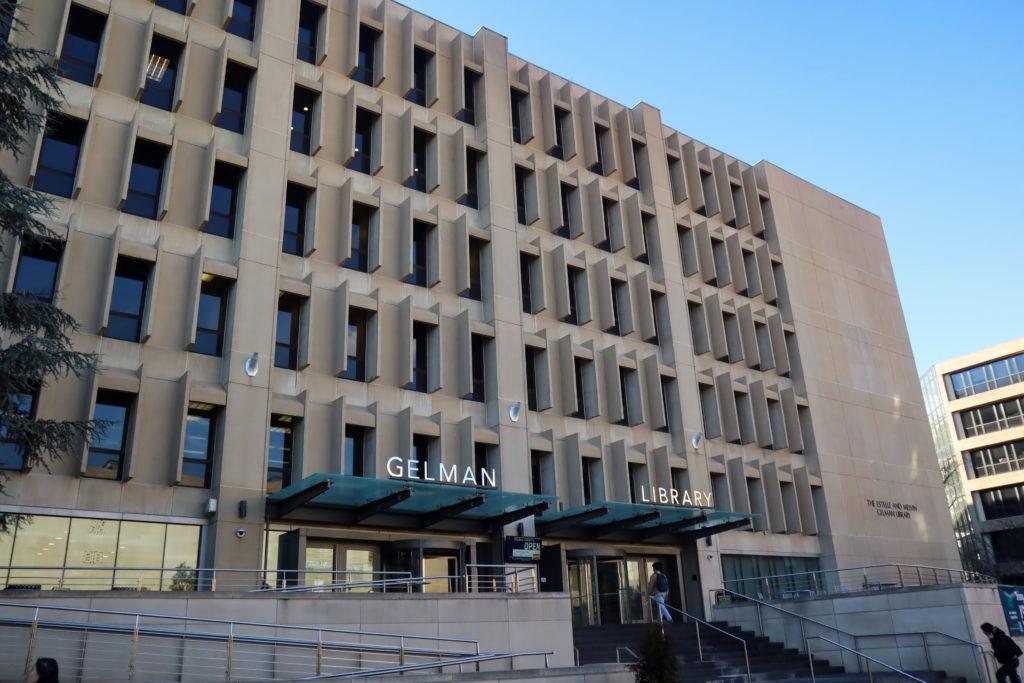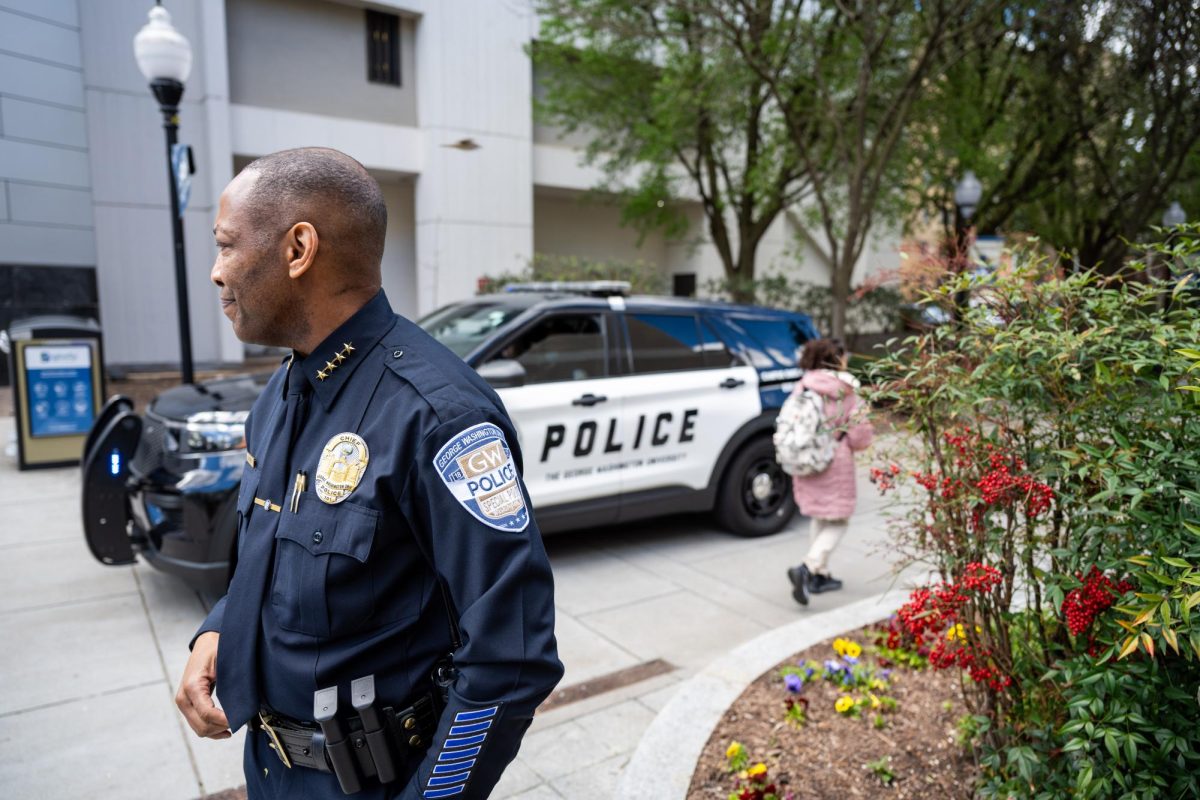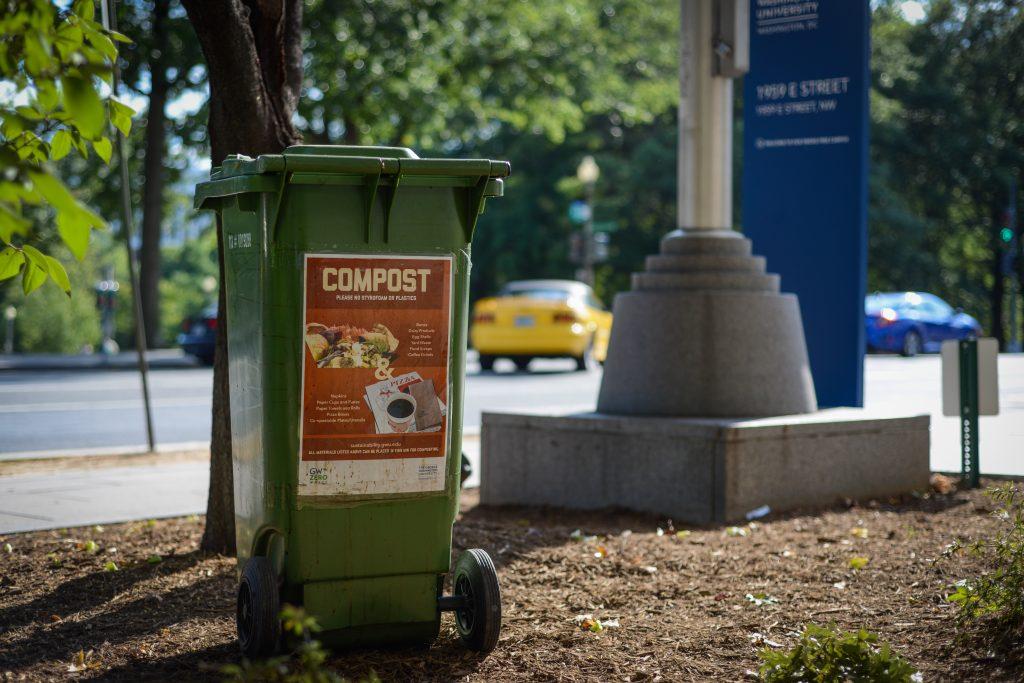A program providing local residents access to Gelman Library, the Lerner Health and Wellness Center and other campus facilities will return Monday after a nearly three-year hiatus during the pandemic.
The Friends of GW program will reactivate neighbors’ access to Gelman and Eckles libraries, the Mount Vernon Campus Express, brunch in the Eatery at Pelham Commons, sporting events at the Smith Center and at the Vern and meeting spaces on campus. More than a dozen locals said the program’s pause forced them to seek alternatives to its amenities as their routine activities at University facilities came to a halt and gave way to adjustments like more expensive memberships at nearby gyms.
Kevin Days, the University’s director of community relations, said officials suspended “community benefits” for nearly 350 cardholders in March 2020 after the University closed operations at the onset of the pandemic. Residents eligible for a GWorld card through the Friends of GW program must reside within the 20037 and 20006 zip codes of Foggy Bottom or the area around the Mount Vernon Campus spanning 44th, Dexter Street and 49th streets, MacArthur Boulevard and Whitehaven Parkway.
Days said officials have changed some of the University’s benefits for cardholders upon the program’s relaunch Monday “to better serve the community.” He said the only community benefit that will not be reinstated is the University’s course audit program – discounted classes without a grade or credit that are catered toward alumni and community members who meet an age requirement set by the program.
“After reviewing the existing programs offered, the University decided to move forward with the resumption of the community benefits to honor its promise of being a resource for the University neighbors,” Days said in an email.
He said officials “always intended” to resume the program.
“The University is committed to ensuring that our neighbors also benefit from living close to a prestigious university,” Days said.
Prospective cardholders in Foggy Bottom must fill out an application and pay a $15 initial fee at the GWorld Card Office in the University Student Center to join the program, and officials will offer a digital form for Mount Vernon residents to apply. Community members must renew their cards every two years and pay a $25 replacement fee if they lose their card, according to the program’s website.
Jim Malec, the vice chair of the Foggy Bottom and West End Advisory Neighborhood Commission, said he signed up “almost immediately” for the program upon moving to Foggy Bottom seven years ago and used Lerner’s basketball courts and Gelman Library. He said the duration of the program’s hiatus came at the expense of neighbors’ health and wellness, stripping community access from one of the only affordable and “full amenity” gyms in the area.
The cost to access Lerner through the program is an additional $53 a month on top of the card’s flat fee, while other gyms in the area, like Orange Theory, Golds and Balance Gyms cost $119, $80 and $99 a month, respectively.
“In my view, GW’s unique position as one of the city’s largest landowners, its location in the center of our nation’s capital and its namesake’s belief in the value of a public national university committed to civic education means that it should strive to be a model for community inclusivity,” Malec said in an email.
Malec urged officials to expand community members’ access to libraries on campus, citing how nonstudents can visit the library but cannot check out books like students, who can borrow books for up to 42 days after checking them out. He said officials should update the program’s benefits, like community access to GW dining facilities and “free or significantly discounted access” to sporting events, which nonstudents can only access via roughly $10 tickets.
“GW should focus on creating the most robust community benefits program possible,” Malec said.
John George – the president of the Foggy Bottom Association, a neighborhood community organization, and a Foggy Bottom resident for 26 years – said many residents are “eager” to reengage with the Friends of GW program because these services were once embedded in locals’ daily routines.
“Everyone adapted as best they could, and replacement of these services was difficult but necessary,” George said.
Ellen Rosenkranz, who lives in Singapore but sometimes spends her springs and summers in Foggy Bottom, said her previous access to the gym through Friends of GW was “wonderful” because of its close proximity to her apartment. Rosenkranz said she frequented Foggy Bottom’s Balance Gym during the program’s pause, but the $99 monthly membership was more expensive than those offered at Lerner.
“It is two blocks from my apartment, and with the pool and various classes on top of the other fitness facilities, it is not only convenient but a fabulous deal,” Rosenkranz said.
Rozanne Weissman, a West End resident since the mid-1980s, said she took weekly senior fitness classes at Lerner through the program prior to the pandemic. She said she missed classes “greatly” and became “significantly weaker” from her lack of exercise when the program went on hold.
“My neck and shoulders were extremely painful from being hunched over devices,” Weissman said in an email. “When physical therapy offices reopened, I became one of many patients of all ages being treated for neck/shoulder issues. Health requires movement.”
Denise Vogt – the co-chair of the Foggy Bottom Association’s History Project, a team that works to preserve local history – said when Lerner gym reopened in late October following months of renovations, some locals were disappointed they could not return to the facility right away despite students’ immediate access. She said the center’s delay in reopening “strongly affected” locals with limited social engagement and mobility.
Vogt said the neighborhood association has also called on officials to reinstate GW’s course audit program after pausing it during the pandemic.
She said neighbors discussed the program’s return during community meetings over the past “few years,” where officials have said they are “reevaluating” the program in response to repeated requests for updates on its return.
“It’s the close proximity of the campus to the neighborhood and the level of classes that make the program of great interest,” Vogt said.
Max Porter and Grace Chinowsky contributed reporting.








